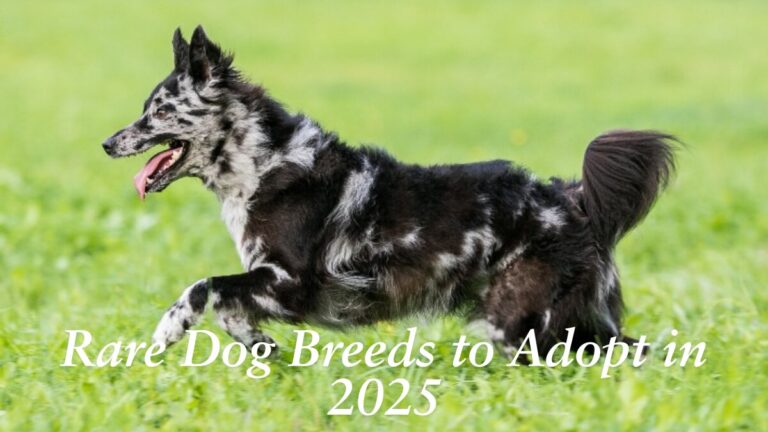Introduction:
Hunting Dog Breeds That Make Great Family Pets are often associated with outdoor pursuits and athletic activities, but many of these breeds also make wonderful family companions. Known for their intelligence, loyalty, and energy, these dogs excel at forming strong bonds with humans, especially children. However, it’s essential to find the right breed that suits both hunting activities and the dynamics of family life.
In this article, we’ll investigate different hunting canine varieties that flourish as family pets, analysing their character qualities, care requirements, and versatility to family settings. Whether you want a fun loving ally for your children or an enthusiastic accomplice for your outside experiences, these varieties offer the smartest possible scenario.
What Makes a Hunting Dog Suitable for Family Life?
Not all hunting dogs are created equal when it comes to family life. Some breeds may be highly independent or require extensive training, while others blend naturally into a family environment. For a hunting dog to be a good family pet, the following qualities are crucial:
- Temperament: A friendly, calm disposition that gets along well with children and other pets.
- Trainability: The ability to learn commands quickly and respond to obedience training.
- Social Nature: These dogs need to feel comfortable around people, including strangers and visitors.
- Adaptability: Some hunting dogs can live happily in suburban or urban environments with enough exercise and mental stimulation.
Let’s dive into some specific breeds that check these boxes and thrive as family pets.
1. Labrador Retriever
A Perfect Balance of Work and Play
The Labrador Retriever is one of the most popular dog breeds worldwide—and for good reason. Originally bred to retrieve waterfowl, Labs are known for their intelligence, loyalty, and easy-going nature. These qualities make them equally suited for hunting and family life. Labs are gentle with children, quick learners, and eager to please, which makes training straightforward.
With regards to everyday life, Labradors succeed due to their cordial and social nature. They seldom show hostility and can undoubtedly coexist with youngsters, different pets, and even guests. Their adoration for open air exercises, for example, swimming and playing get, implies they fit squarely into a functioning family way of life.
Key Traits
- Energy Level: High; needs daily exercise
- Size: Medium to large (55-80 lbs)
- Temperament: Friendly, affectionate, social
- Training Needs: Easy to train, responds well to positive reinforcement
Labradors do require ample exercise and mental stimulation, so they are best suited to families that enjoy outdoor activities. Without proper exercise, they can become bored and engage in destructive behavior like chewing furniture or digging.
2. Golden Retriever
Gentle, Loving, and Adaptable
Golden Retrievers are another hunting breed that excels as a family companion. Known for their soft mouths, Goldens were initially bred to retrieve waterfowl without damaging the catch. Their intelligence and gentle nature make them ideal family pets, especially for families with children.
Golden Retrievers thrive in social environments and are exceptionally patient with kids. They are also known for their empathy, often forming close emotional bonds with family members. Their love for physical activities like running, swimming, and playing fetch makes them a great fit for active households.
Key Traits
- Energy Level: High; needs regular exercise
- Size: Medium to large (55-75 lbs)
- Temperament: Friendly, loyal, patient
- Training Needs: Very trainable, enjoys obedience tasks
Golden Retrievers do require a fair amount of grooming due to their long coats, so be prepared for regular brushing sessions. However, their affectionate and tolerant nature makes them worth the effort.
3. Beagle
A Small Package with a Big Heart
Beagles are little, enthusiastic hunting canines initially reproduced for following little game like bunnies. Notwithstanding their solid hunting senses, Beagles are agreeable, friendly, and awesome family pets. They are especially appropriate to families with kids, on account of their energetic nature and little size, which makes them less scary for small children.
Beagles are pack animals by nature, so they thrive in environments where they receive plenty of social interaction. They get along well with other dogs and enjoy being part of a family unit. However, Beagles are known for their stubborn streak, so consistent training from an early age is essential.
Key Traits
- Energy Level: Moderate to high; enjoys walks and playtime
- Size: Small to medium (20-30 lbs)
- Temperament: Friendly, curious, energetic
- Training Needs: Can be stubborn, but responds to positive reinforcement
Because of their love for food, Beagles can be prone to weight gain, so families need to monitor their diet closely. Regular exercise and mental stimulation will also help prevent boredom-related mischief.
4. Brittany Spaniel
Energetic and Kid-Friendly
The Brittany Spaniel is a versatile hunting dog known for its speed, agility, and enthusiasm in the field. Despite its athleticism, Brittany also makes an excellent family pet. This breed is friendly, gentle with children, and enjoys spending time with its human family.
Brittany Spaniels have high energy levels, so they are ideal for families that enjoy outdoor activities such as hiking, jogging, or camping. They form close bonds with their family members and are known for being affectionate and eager to please.
Key Traits
- Energy Level: Very high; needs lots of physical activity
- Size: Medium (30-40 lbs)
- Temperament: Friendly, affectionate, energetic
- Training Needs: Easy to train, but requires consistent mental stimulation
Because of their high energy, Brittany Spaniels need plenty of exercise to stay happy. If their energy needs are met, they become well-behaved and affectionate family members.
5. Vizsla
The Velcro Dog
The Vizsla is often called the “Velcro Dog” due to its tendency to stick close to its owners. Bred as a hunting companion in Hungary, the Vizsla is known for its speed, endurance, and strong bond with humans. This breed thrives on companionship and doesn’t do well when left alone for long periods.
Vizslas are excellent family dogs, especially for active households. They are gentle with children, friendly with strangers, and eager to participate in family activities. However, their high energy levels mean they need regular physical and mental exercise to stay happy.
Key Traits
- Energy Level: Extremely high; needs vigorous exercise
- Size: Medium to large (45-65 lbs)
- Temperament: Loyal, affectionate, friendly
- Training Needs: Very trainable, but requires regular mental stimulation
Due to their need for close companionship, Vizslas do best in homes where someone is usually present. They are not suitable for families with a sedentary lifestyle, as they require extensive exercise.
FAQ:
What hunting dog breeds are considered the best for families?
The absolute best hunting canine varieties for families incorporate Labrador Retrievers, Brilliant Retrievers, Beagles, and German Shorthaired Pointers. These varieties are known for their amicable demeanor and versatility to day to day life.
How do hunting dog breeds behave with children?
Many hunting dog breeds are gentle and patient with children. They often have a playful nature, making them great companions for kids. However, it’s essential to supervise interactions and train the dog properly to ensure safety and harmony.
Do hunting dog breeds require a lot of exercise?
Yes, hunting dog breeds generally have high energy levels and require regular exercise to stay healthy and happy. Daily walks, playtime, and mental stimulation are crucial for keeping these dogs well-adjusted in a family environment.
Conclusion:
Hunting canine varieties offer an exceptional mix of insight, dedication, and energy, making them phenomenal family mates. Whether you favor the fun loving Labrador Retriever or the vigorous Vizsla, these varieties flourish in family settings with the perfect proportion of consideration and exercise.
While choosing a hunting canine as a family pet, it’s fundamental to consider the variety’s energy levels, disposition, and preparing needs. Each breed has its own character and care necessities, yet with the right climate, any of these canines can turn into a darling individual from the family.




